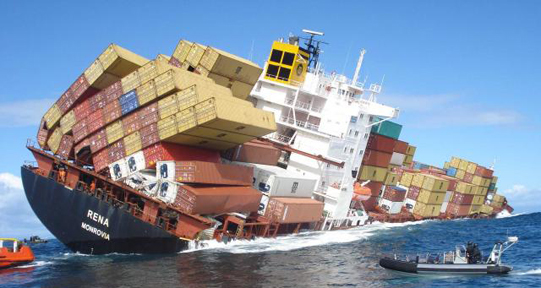NEW YORK – Though nothing has come of the World Trade Organization’s Doha Development Round of global trade negotiations since they were launched almost a dozen years ago, another round of talks is in the works. But this time the negotiations will not be held on a global, multilateral basis; rather, two huge regional agreements – one transpacific, and the other transatlantic – are to be negotiated. Are the coming talks likely to be more successful?
The Doha Round was torpedoed by the United States’ refusal to eliminate agricultural subsidies – a sine qua non for any true development round, given that 70% of those in the developing world depend on agriculture directly or indirectly. The US position was truly breathtaking, given that the WTO had already judged that America’s cotton subsidies – paid to fewer than 25,000 rich farmers – were illegal. America’s response was to bribe Brazil, which had brought the complaint, not to pursue the matter further, leaving in the lurch millions of poor cotton farmers in Sub-Saharan Africa and India, who suffer from depressed prices because of America’s largesse to its wealthy farmers.
Given this recent history, it now seems clear that the negotiations to create a free-trade area between the US and Europe, and another between the US and much of the Pacific (except for China), are not about establishing a true free-trade system. Instead, the goal is a managed trade regime – managed, that is, to serve the special interests that have long dominated trade policy in the West.
There are a few basic principles that those entering the discussions will, one hopes, take to heart. First, any trade agreement has to be symmetrical. If, as part of the “Trans-Pacific Partnership” (TPP), the US demands that Japan eliminate its rice subsidies, the US should, in turn, offer to eliminate its production (and water) subsidies, not just on rice (which is relatively unimportant in the US) but on other agricultural commodities as well.
Second, no trade agreement should put commercial interests ahead of broader national interests, especially when non-trade-related issues like financial regulation and intellectual property are at stake. America’s trade agreement with Chile, for example, impedes Chile’s use of capital controls – even though the International Monetary Fund now recognizes that capital controls can be an important instrument of macro-prudential policy.
Other trade agreements have insisted on financial liberalization and deregulation as well, even though the 2008 crisis should have taught us that the absence of good regulation can jeopardize economic prosperity. America’s pharmaceutical industry, which wields considerable clout with the office of the US Trade Representative (USTR), has succeeded in foisting on other countries an unbalanced intellectual-property regime, which, designed to fight generic drugs, puts profit ahead of saving lives. Even the US Supreme Court has now said that the US Patent Office went too far in granting patents on genes.
Finally, there must be a commitment to transparency. But those engaging in these trade negotiations should be forewarned: the US is committed to a lack of transparency. The USTR’s office has been reluctant to reveal its negotiating position even to members of the US Congress; on the basis of what has been leaked, one can understand why. The USTR’s office is backtracking on principles – for example, access to generic medicines – that Congress had inserted into earlier trade agreements, like that with Peru.
In the case of the TPP, there is a further concern. Asia has developed an efficient supply chain, with goods flowing easily from one country to another in the process of producing finished goods. But the TPP could interfere with that if China remains outside of it.
With formal tariffs already so low, negotiators will focus largely on non-tariff barriers – such as regulatory barriers. But the USTR’s office, representing corporate interests, will almost surely push for the lowest common standard, leveling downward rather than upward. For example, many countries have tax and regulatory provisions that discourage large automobiles – not because they are trying to discriminate against US goods, but because they worry about pollution and energy efficiency.
The more general point, alluded to earlier, is that trade agreements typically put commercial interests ahead of other values – the right to a healthy life and protection of the environment, to name just two. France, for example, wants a “cultural exception” in trade agreements that would allow it to continue to support its films – from which the whole world benefits. This and other broader values should be non-negotiable.
Indeed, the irony is that the social benefits of such subsidies are enormous, while the costs are negligible. Does anyone really believe that a French art film represents a serious threat to a Hollywood summer blockbuster? Yet Hollywood’s greed knows no limit, and America’s trade negotiators take no prisoners. And that’s precisely why such items should be taken off the table before negotiations begin. Otherwise, arms will be twisted, and there is a real risk that an agreement will sacrifice basic values to commercial interests.
If negotiators created a genuine free-trade regime that put the public interest first, with the views of ordinary citizens given at least as much weight as those of corporate lobbyists, I might be optimistic that what would emerge would strengthen the economy and improve social well-being. The reality, however, is that we have a managed trade regime that puts corporate interests first, and a process of negotiations that is undemocratic and non-transparent.
The likelihood that what emerges from the coming talks will serve ordinary Americans’ interests is low; the outlook for ordinary citizens in other countries is even bleaker.
This article is brought to you by Project Syndicate.


